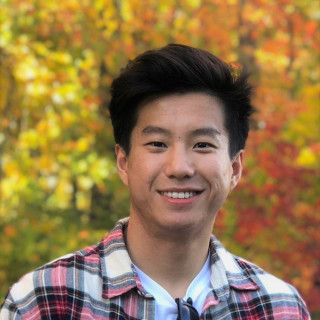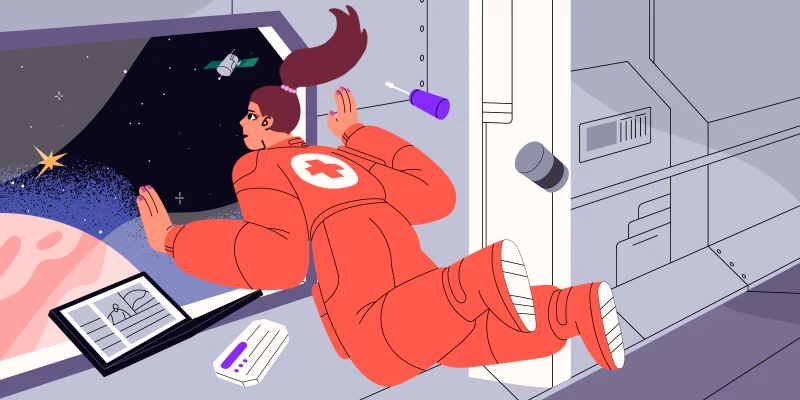As a medical student, I often felt alone. During those times throughout the day when I’d have a moment to myself, I’d be reminded of how alienating it can be to work in the hospital. It sounds counterintuitive, but when I’d spend every day always thinking about myself in relation to others — my patients, my attendings/residents, or even my peers — I found myself drifting farther away from my own emotions and thoughts. Life began feeling simulated, with my schedules perfectly mapped out and experiences predetermined. And when I did turn inward, I felt empty. Judging from conversations with peers and from the plethora of articles on clinician burnout, I know I am not alone in this loneliness. Below, I share three strategies for reframing, and coping with, loneliness in medicine.
Treating Loneliness Like a Friend
One night, filled with nervous energy fit for my first night shift, I made my way over to the chapel. Throughout clerkship year, this solid oak sanctuary with deep red carpets and faux candle lighting had been my fortress of solitude, a place to collect my thoughts and gather my breath before whatever came next.
I stayed there for a while. Then I ambled over to the side desk. Here I’d often glance at the open binder of farewells, prayers, and dreams of anonymous passersby. Almost unconsciously, I slid my fingers over a heartfelt goodbye, as if sharing a moment of consolation across time.
During times of solitude, it’s easy to focus on the absence of all we hold dear. Yet doing so often means inviting in loneliness and regret. In these times when our light shines small amid the dark and vast backdrop of this world, it’s inevitable that we feel alone. In response, we push away these baleful thoughts, we leave them for rainy days, because we believe that dwelling on sadness is not productive. And yet, I urge trainees to embrace these moments, because these moments will inevitably come. Rather than be surprised by them, we should soak in whatever emotions resonate with us, and treat them with distant respect. Maybe then we could realize that even when alone, we are united by our shared loneliness.
Being Candid in a Community Setting
As I went through clerkship year, I didn’t realize how burnt out I was until one afternoon, in one of our peer group reflection sessions, I just started venting. When I stopped, I immediately felt embarrassed, ashamed that I would so brazenly acknowledge my experiences. What I didn’t expect was a chorus of eight other voices all echoing similar sentiments, acknowledging my frustrations, and sharing their own experiences. As the year went on, I found these hour-long debrief sessions to be one of the highlights of my clinical year.
Our conversations were famous for taking unpredictable detours. We could start off talking about the long hours on a particular service that felt unhelpful both clinically and educationally, and before you know it, we’d be talking about what the best meals in the cafeteria were, and then the best hiking trails in New England. Looking back, what I enjoyed the most about this space was that there was never an agenda, and never any expectation for us to bring our best selves.
In medicine, especially as a trainee, our day-to-day demands perfection, and if not, our closest attempt to it. Since we are constantly being evaluated, every action we perform seems to have higher stakes. This can be draining, and isolating, especially when I was the only student on a particular floor or service. It’s hard to know what to expect when you have no one else to rely on.
That’s why having these peer groups is so meaningful. Everyone knows exactly what you’re going through, and everyone can metaphorically place themselves in your shoes. Even after clinical year ended, though these structured peer groups were no longer scheduled, I found myself reaching out to classmates for monthly meet-ups. Being intentional with time spent venting or reflecting has not only improved my mental health, but also made me feel more connected to my classmates and the profession of medicine.
Remembering that Physicians are Humans, Too
The conversations with attendings and residents that I remember the most from clerkship year often started not with a clinical question, but with personal ones. As someone who’s generally quiet, I’d usually receive feedback after rotations to speak up more, because my demeanor could give off an aura of disinterest. It was something I struggled to work on, but as the year progressed, I found that one way I could connect more quickly with my direct supervisors and mitigate feelings of aloneness was just by talking about life, when time permitted.
I’d start small, asking about how they got into medicine, or how they decided on their specialty. I wasn’t expecting much, but I would often be regaled with incredible stories. And more often than not, it would lead to further conversation about my interests, advice for future career planning, and an implied invitation that these topics of conversation would always be welcome.
For me, that was a big internal achievement. Being comfortable with seeing attendings and residents as other human beings, each with their own struggles and hopes, helped center my approach to the hospital in a new light. Instead of a heliocentric worldview where everything and everyone rotated around me, while I had to figure things out by myself, I now saw mentors, partners, and even friends.
At one of my last primary care clinics, after we’d seen all our patients for the day, instead of packing up my things and hurriedly rushing out to catch the 5 p.m. train, I took a deep breath and instead asked my preceptor whether he enjoyed his profession or not. He started answering, and then looked at me with almost a confused expression. Our normal topics of conversations were about the side effects of statins or identifying the signs of sleep apnea through the patient interview, not such personal ones.
In our conversation, he shared doubts and questions I had just had myself. He told me about his winding path through medicine, and the hard decisions he had to make along the way. I told him about some of my own insecurities and fears. We shared a couple laughs and ended with a promise to continue the conversation next time.
By the time I got home, it was nearly 6 p.m. But I left that day feeling more connected to my preceptor than I ever had before.
Since then, I’ve put more emphasis on getting to know my preceptors and supervisors on a more personal level. And as I’ve done so, the hospital has begun turning into a collage of color and warmth. Instead of feeling alone, the distances that separate us feel more traversable than ever. And while I still feel lonely, I’ve realized there is always community and connection just waiting to be found.
How do you mitigate loneliness and find community in med school and beyond? Share your experiences in the comments!
David Xiang is a third-year medical student at Harvard Medical School, aspiring to be a physician-writer. He enjoys writing poetry and fiction, playing ukulele, and playing basketball with classmates. He also makes comedy skits on TikTok @confused.med.student. David is a 2022–2023 Doximity Op-Med Fellow.
Image by Teo Tarras / Shutterstock





